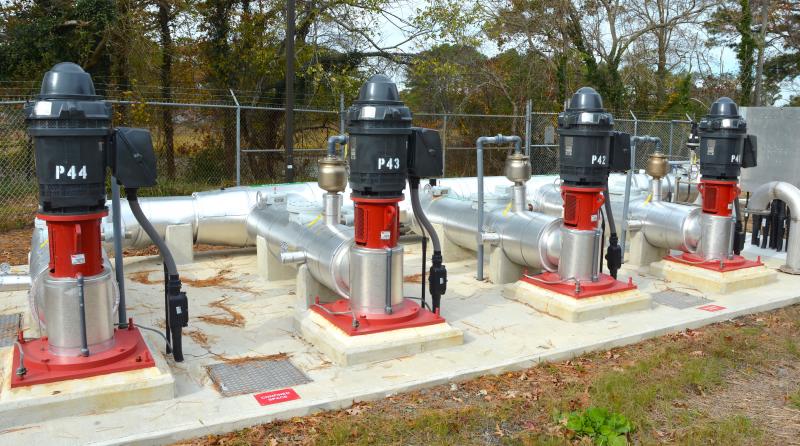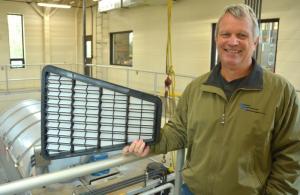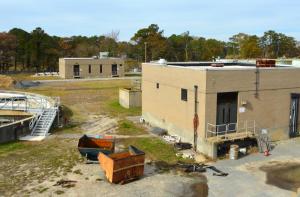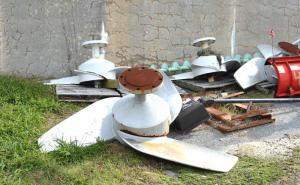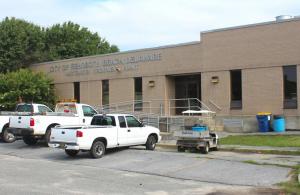Rehoboth’s long-awaited water and wastewater rate review is complete; it appears significant rate increases are likely going forward.
During the commissioners meeting in October, Mayor Paul Kuhns announced Massachusetts-based consultant The Abrahams Group was nearing completion of the study, with two meetings Nov. 5 – an executive session and a public meeting – to review the review.
Kuhns said the city has spent roughly $42 million on ocean outfall construction, with possibilities of spending more on additional capital improvements. At this point, city officials must figure out how to pay for improvements, he said.
According to the report, in addition to the $42 million spent on the outfall, GHD has recommended roughly $4.8 million in improvements to the city’s water system and roughly $12.4 million more in improvements to the city’s wastewater system through fiscal year 2023 – the period of time for the review. In July, the city approved $5.7 million in wastewater improvements, half of which will be paid for by the county, a partner in wastewater disposal.
According to the report, since fiscal year 2013, the city has seen a surplus of approximately $3.7 million in water revenue and a surplus of approximately $3.7 in wastewater revenue. If the city does nothing related to the rates as it invests in capital improvements, through fiscal year 2023, there is a projected deficit of about $206,000 in water revenue and $4.1 million in wastewater.
Wastewater system improvements
Regarding the wastewater system, the report considers only in-town users. If the city chooses to borrow for improvements there is a projected increase of $349 by Fiscal Year 2020, from $581 to $930, for the average user, but then it levels off through Fiscal Year 2023.
If the city chooses to pay for wastewater improvements through capital outlay, the average city resident would see an increase of $713 by Fiscal Year 2023. If the city were to choose this route, the city would avoid about $1.5 million in financing costs. The report also says if the city is to fully fund GHD’s recommended expenditures, it should plan on revisiting wastewater rates in the near future because the plan includes an average of about $6.3 million of additional expenditures from fiscal year 2025 to fiscal year 2027.
Some of the wastewater system capital improvements through fiscal year 2023 include $3.3 million for upgrades during Phase 3 of the treatment plant improvements, $1.4 million for force-main replacement, State Road pump station rehabilitation at $246,876 and St. Lawrence Street pump station improvements at $162,000.
Could the county take over wastewater for Rehoboth?
Prior to the public vetting of the rates review, Rehoboth commissioners held an executive session with the Abrahams Group and a number of Sussex County officials including Sussex County Council President Michael Vincent, County Administrator Todd Lawson and County Engineer Hans Medlarz.
Medlarz said the county was invited for the executive session because the county is a significant partner with the city. If the city were a corporation, and it was thinking about making a significant change, it would include the major stockholders in the discussion, he said.
“We are the Warren Buffetts for the city in this case,” Medlarz said, speaking in an interview Nov. 7.
Medlarz said the city has some deferred maintenance on the wastewater plant that should be addressed sooner rather than later. If the city decides not to move forward with the county taking over wastewater management, the county is happy with the current agreement and can live within its parameters.
“If this gets legs and grows, it’s a great opportunity,” said Medlarz. “It’s about trying to get increased efficiency.”
The Abrahams report listed several benefits for the commissioners to consider if the county were to take over wastewater operations: the county has more staff, the county would assume the debt for the outfall project and treatment plant upgrades, and the county can spread future costs across a larger user base.
Medlarz noted the city and the county are 50/50 partners on the outfall already, and that relationship wouldn’t change. What would change, he said, is who is on the hook for making sure permits continue to get updated and other regulatory issues. He said the county would assume the costs for future capital improvements.
A special meeting with city and county officials has been scheduled for 10 a.m., Monday, Nov. 26, in the commissioners room of city hall to discuss the county’s proposal.
Water system improvements
The report shows how the increase will affect an average user’s bill into three categories – Breezewood residents, outside Rehoboth residents and in-town Rehoboth. If the city elects to borrow funds to pay for improvements, by fiscal year 2023, which begins April 1, 2022, Breezewood residents would see an annual increase of $36, out-of-town users an increase of $54 and in-town users an increase of $34. The study ends at Fiscal Year 2023, but the improvements would not yet be fully paid for.
If the city decides to pay for the improvements through capital outlay instead of borrowing, over the same period, the costs to users are higher. Breezewood residents could see an increase of $91, out-of-town users an increase of $135 and in-town users an increase of $86. The report estimates a savings of up to $900,000 in financing costs if the city does not borrow money but instead funds through a capital outlay.
According to a table in the report, some of the water system improvements include roughly $557,000 in repair and rehabilitation of wells and water towers; capital projects of $1 million for an upgrade to well 7, the replacement of controls at the Lincoln Street water tower for $204,000, a renewal to well 6 for $205,000, and $263,000 for well 3A rehabilitation; and distribution system recommendations of nearly $1.6 million for pipe replacement, water storage tank inspections of about $325,000, and valve maintenance at roughly $150,000.
Why was report discussed in executive session?
During the October meeting, Kuhns said the executive session would be needed to discuss confidential documents related to the rate study. However, city officials posted the documents online shortly after the executive session.
In an email Nov. 12, Krys Johnson, city spokeswoman, wrote, “The details in the report are very technical in nature as to how the report was prepared/developed, and the executive session allowed time for more technical discussion.”
In a follow-up email Nov. 15, Kuhns said he called for the executive session. “I felt it important for the commissioners to have the opportunity to not only listen to the presentation, but to be able to comfortably examine the details of the suggestions and ask any pertinent questions that may seem too technical for public consumption. I believe it was necessary for the commissioners to be as prepared as possible for the public discussion.”
Rebecca Snyder, Maryland, Delaware, Washington, D.C., Press Association executive director, said Kuhns’ attitude is in direct opposition to the fundamental idea of government transparency.
“I find it condescending that the executive session was called because they felt some elements of the study were too ‘technical’ for the public,” Snyder said in a Nov. 16 email. “It seems to me that the commissioners may have been embarrassed to admit they had questions or did not know enough to speak knowledgeably about the study in public. That attitude robs the public of the opportunity to gain the same level of understanding as their elected leaders on a complex, technical issue that has significant repercussions for the citizens of Rehoboth.”
After the Cape Gazette raised concerns about the executive session, City Solicitor Glenn Mandalas listed the commissioners executive session questions during the board of commissioners meeting Nov. 16.
Mandalas, without saying which commissioner asked which questions, said commissioners asked for clarification on the variation of rates under the different approaches to paying for the capital improvements; whether these improvements were a long-term or short-term fix; about whether any land would transfer to the county should the county take over wastewater disposal; having the county present something in writing; can a utility board be established going forward so the city has some say in the rates going forward; and whether the city manager supported the county running the wastewater plant.
Chris Flood has been working for the Cape Gazette since early 2014. He currently covers Rehoboth Beach and Henlopen Acres, but has also covered Dewey Beach and the state government. He covers environmental stories, business stories and random stories on subjects he finds interesting, and he also writes a column called Choppin’ Wood that runs every other week. He’s a graduate of the University of Maine and the Landing School of Boat Building & Design.














